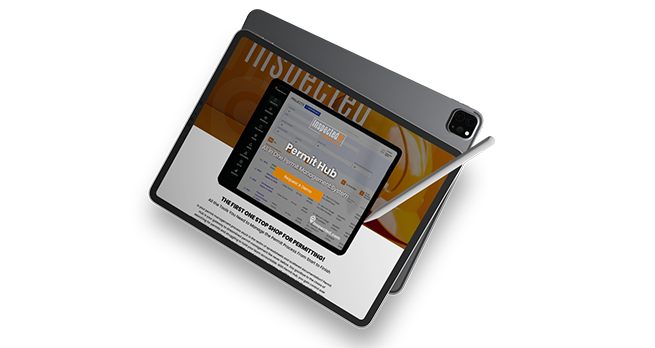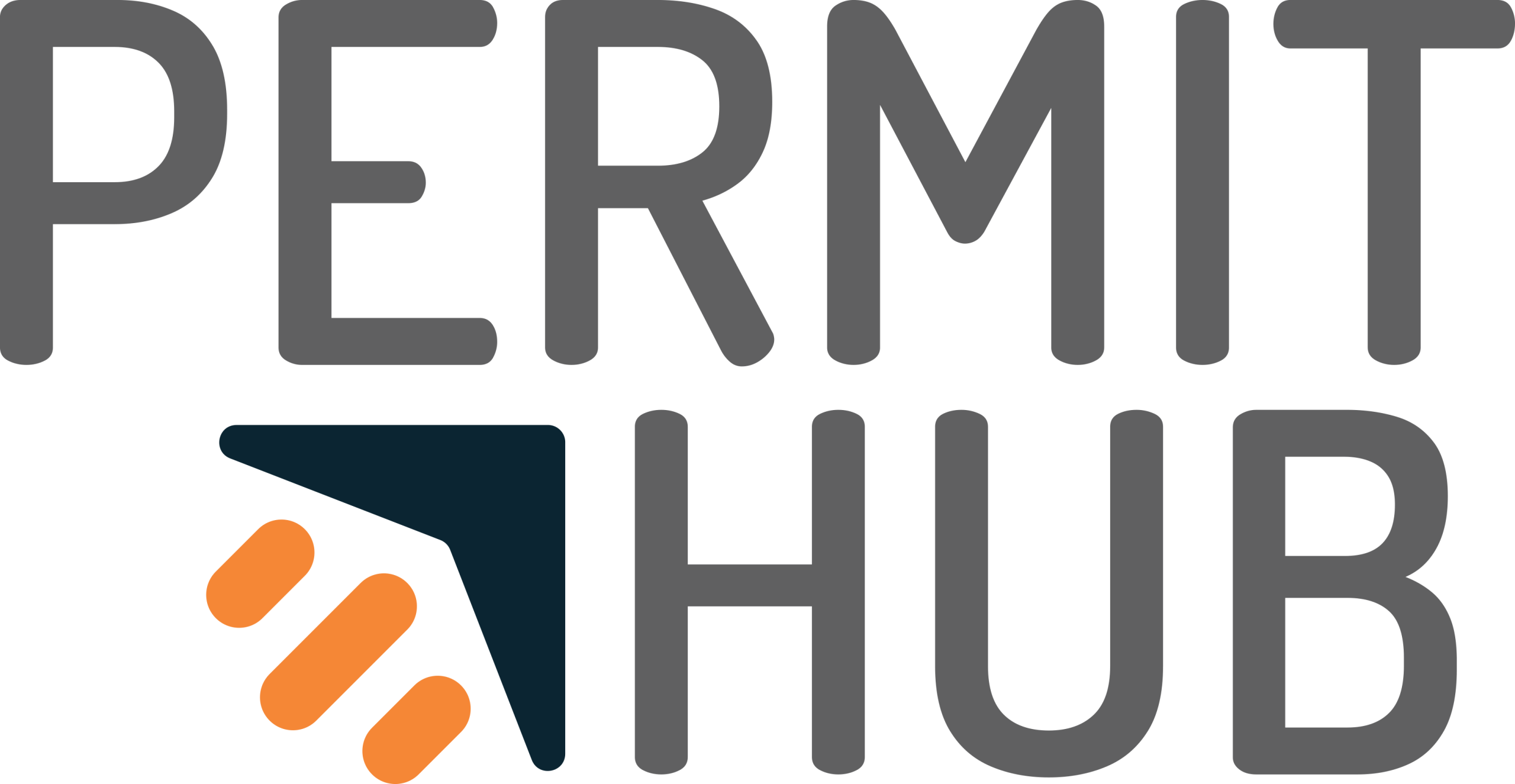Take Control of Permits—Without the Paperwork
Managing permits shouldn’t slow you down. Permit Hub gives contractors a smarter way to track, schedule, and collaborate on jobs—without spreadsheets, email chains, or missed deadlines. Start free and scale as you grow.

What is Permit Hub?
Permit Hub is a self-service, CRM SaaS platform that helps contractors manage the entire lifecycle of construction permits—from project setup to final inspection—without relying on third-party services. It replaces outdated tools like spreadsheets and email threads with one centralized, digital workspace.
Save time, reduce chaos, and keep every project moving.
Why Contractors Are Switching to Permit Hub
No more digging through spreadsheets or tracking down email threads.
Automates your workflow so you can find what you need—fast.
Built-in messaging and task management keep your team aligned.
Everything is time-stamped and logged for total accountability.
Unlimited users included—add your whole team at no extra cost.
Full visibility into every permit, inspection, and deadline.
Wondering if Permit Hub is right for your trade?




From permit tracking to project messaging—it’s all built in.
Everything You Need to Manage Permits Like a Pro
- Project and permit creation
- Customizable permit status flows
- Document uploads and storage
- Scheduling for plan reviews and inspections
- Built-in messaging system per project
- Task creation and assignment
- Notes and communication logs
- Unlimited user access
- Time-stamped activity logs
Want to see these features in action?
Why Permit Hub Beats the Status Quo
Stop Wrestling with Spreadsheets—There’s a Better Way
Legacy Systems (Status Quo) to Permit Hub
Legacy Systems (Status Quo)
Spreadsheets and email chains; hard to track status or next steps
Permit Hub (Freemium Version)
Centralized project and permit dashboard with customizable status workflows
Legacy Systems (Status Quo)
Manual calendar reminders; prone to missed deadlines.
Permit Hub (Freemium Version)
Built-in self-managed scheduling tools for inspections and plan reviews (for internal use).
Legacy Systems (Status Quo)
Scattered across shared folders or email threads.
Permit Hub (Freemium Version)
Centralized upload and storage with easy access by project.
Legacy Systems (Status Quo)
Email chains; no contextual message tracking.
Permit Hub (Freemium Version)
Built-in messaging system per project (like Slack).
Legacy Systems (Status Quo)
No clear accountability or follow-up mechanism.
Permit Hub (Freemium Version)
Assign tasks, set deadlines, and track completion.
Legacy Systems (Status Quo)
Must call or visit city offices or manually email stakeholders.
Permit Hub (Freemium Version)
Always-on access to permit status with time-stamped logs.
Legacy Systems (Status Quo)
Often single-user or shared login accounts.
Permit Hub (Freemium Version)
Unlimited users with role-based access and collaborative tools.
Legacy Systems (Status Quo)
No reliable history; decisions and changes often undocumented.
Permit Hub (Freemium Version)
Automatic, time-stamped logs for all actions and communications.
Legacy Systems (Status Quo)
No formal onboarding; tools not designed for scaling teams.
Permit Hub (Freemium Version)
Freemium access allows full team onboarding at no cost.
Legacy Systems (Status Quo)
No upgrade path; limited to ad hoc improvements.
Permit Hub (Freemium Version)
Upgrade-ready for future features like municipal integration, engineer access, and automation.
Why Permit Hub Beats the Status Quo
Stop Wrestling with Spreadsheets—There’s a Better Way
Legacy Systems (Status Quo)
Spreadsheets and email chains; hard to track status or next steps.
Permit Hub
Centralized project and permit dashboard with customizable status workflows.
Manual calendar reminders; prone to missed deadlines.
Built-in self-managed scheduling tools for inspections and plan reviews (for internal use).
Scattered across shared folders or email threads.
Centralized upload and storage with easy access by project.
Email chains; no contextual message tracking.
Built-in messaging system per project (like Slack).
No clear accountability or follow-up mechanism.
Assign tasks, set deadlines, and track completion.
Must call or visit city offices or manually email stakeholders.
Always-on access to permit status with time-stamped logs.
Often single-user or shared login accounts.
Unlimited users with role-based access and collaborative tools.
No reliable history; decisions and changes often undocumented.
Automatic, time-stamped logs for all actions and communications.
No formal onboarding; tools not designed for scaling teams.
Freemium access allows full team onboarding at no cost.
No upgrade path; limited to ad hoc improvements.
Upgrade-ready for future features like municipal integration, engineer access, and automation.
Let’s walk through it—on your time.
WATCH OUR Onboarding Video - coming soon
This quick demo will show you exactly how Permit Hub works, so you can decide if it’s the right fit for your team—no calls, no pressure, just answers. Check back later, as this is coming soon!


Start Smarter. Scale Easier. Join today
Ditch the paperwork and move your permitting process into a tool designed for how contractors really work.
